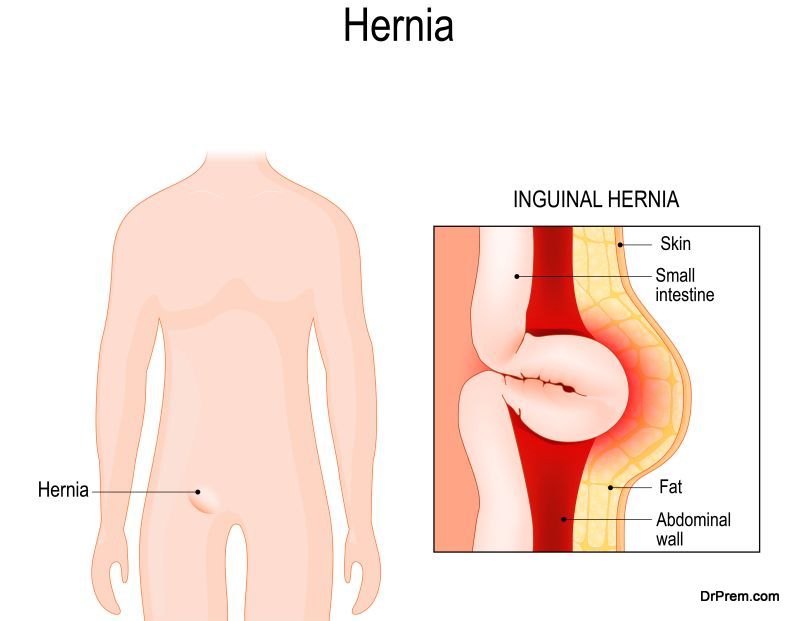A hernia is generally an effect of intense physical exertion and the chances of ailing from hernia largely depend on genetics. It is a condition when a specific organ pushes through a muscle wall or any membrane inside a human body and is treated via surgical procedures. If you ever had to undergo hernia surgery, you know how complex the pre-operative and post-operative care is. If you are going to undergo the surgery for the first time, then this article is just for you.
Post-operative hernia care is very critical to avoid any potential complications. People treated via a surgical technique for hernia need to give themselves sufficient days of bed rest, followed by weeks of relaxation to avoid straining the body in any way. During the recovery phase, it is essential to follow the advised post-operative care like to avoid smoking, running up the stairs, or following any strenuous exercise regime. One can definitely go for a walk and drink a lot of fluids or consume a lot of fiber and vegetables.
1. A big no to smoking and yes to fluids!
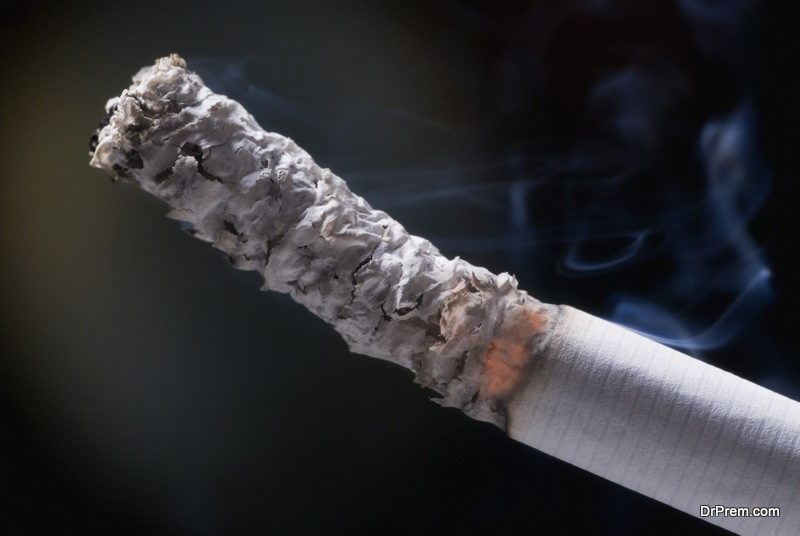 Increased intake of fluids is recommended after patients who have undergone a surgical treatment to treat hernia. We receive a good amount of fluid before and during surgery, however, post-surgery the fluid intake typically decreases. Minimizing fluid consumption can lead to constipation. Avoiding fluids after hernia surgery can interfere with the bowel movements as the stools become dry and hard. Higher fluid intake will soften the stools and make bowel movements easier. As the body passes the unwanted food via the large intestine, water re-absorption occurs here. If the consumption of nicotine and narcotic pain medications is increased, it affects this process further.
Increased intake of fluids is recommended after patients who have undergone a surgical treatment to treat hernia. We receive a good amount of fluid before and during surgery, however, post-surgery the fluid intake typically decreases. Minimizing fluid consumption can lead to constipation. Avoiding fluids after hernia surgery can interfere with the bowel movements as the stools become dry and hard. Higher fluid intake will soften the stools and make bowel movements easier. As the body passes the unwanted food via the large intestine, water re-absorption occurs here. If the consumption of nicotine and narcotic pain medications is increased, it affects this process further.
If the body does not replenish the fluids adequately it is known to cause dehydration and further drying and hardening of the stools. To restore proper hydration to all aspects of the body, is it imperative to re-establish the adequate fluid intake soon after surgery. One should also limit nicotine intake after hernia surgery. Risk of complications post-surgical treatments is heightened to a great extent if one stays on a smoking regime. Possibilities of developing an infection in the surgical incision are increased. It is also known to cause acid reflux symptoms. Smoking after hernia repair should be avoided until six to eight weeks post-surgery.
2. Exercise to maintain a healthy weight

Though strenuous workouts are not encouraged after hernia surgery, physical activity under guidance can stimulate bowel movements and relieve constipation. Light exercises such as walking are encouraged to promote weight loss. Exercises focused on muscle movement of legs, arms and shoulders and chest and back help burn calories and enhance metabolism. This aids in weight reduction. Try to begin with an exercise plan at least consult your therapist immediately. You can start walking to the extent you feel comfortable after surgery.
With no specific limitation, always remember to listen to your body. One should avoid lifts and exercises like squatting. You can work out on your abs gradually with minor sit-ups. Strengthening abdominal muscles is advised by conducting exercises like lifting the knees in the air and shoulders slowly off the ground. If there is no pain, this exercise can be repeated. Deep breathing exercise should also be practiced to oxygenate the blood flow thereby expediting the healing process.
3. Increased usage of laxatives
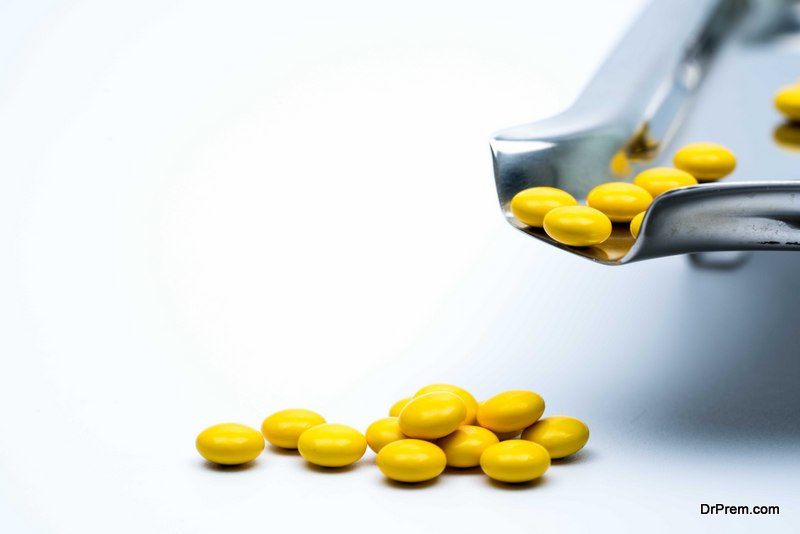 To stimulate and hydrate the intestinal tract and avoid constipation, one should enhance the usage of laxatives and stool softeners. Consult your medical expert to opt for an over-the-counter laxative for hernia repair. One should not hesitate to take an over-the-counter laxative for the first week after surgery. Use bulk-forming laxatives. They help in easier defecation of stools. It should take about three to five days to see positive results. Some examples of bulk-forming laxatives include methylcellulose, oat bran, and polycarbophil. The dosage of such laxative should be increased gradually for the digestive system to adjust to this change.
To stimulate and hydrate the intestinal tract and avoid constipation, one should enhance the usage of laxatives and stool softeners. Consult your medical expert to opt for an over-the-counter laxative for hernia repair. One should not hesitate to take an over-the-counter laxative for the first week after surgery. Use bulk-forming laxatives. They help in easier defecation of stools. It should take about three to five days to see positive results. Some examples of bulk-forming laxatives include methylcellulose, oat bran, and polycarbophil. The dosage of such laxative should be increased gradually for the digestive system to adjust to this change.
Other laxative agents such as Milk of Magnesia, Metamucil and Dulcolax tablets are also available in the market, which can be consumed after consulting the medical expert. These agents are safe and effective. A common problem after an inguinal hernia repair is constipation which may also be worsened by pain killers. Consequently, they also help with post-operative constipation.
4 .Consumption of fiber and vegetables
 Fiber to an individual’s diet should be added slowly post hernia surgery as it can lead to complications varying from gas and bloating to abdominal cramps. Since hernia operation involves intestines to be pushed back inside the abdominal wall, intake of diet rich in fiber and fruits and vegetables will ensure smooth and easy bowel movements. This also helps to relieve the pain post inguinal surgery. Any excessive intake of dairy products should be avoided to ward off constipation. Some examples of foods rich in fiber are beans, whole grains, fruits and green leafy vegetables which are also known to prevent irritable bowel syndrome. Fiber-rich food also helps to maintain the integrity of collagen and elastin of the abdominal wall along with lubrication of the intestines.
Fiber to an individual’s diet should be added slowly post hernia surgery as it can lead to complications varying from gas and bloating to abdominal cramps. Since hernia operation involves intestines to be pushed back inside the abdominal wall, intake of diet rich in fiber and fruits and vegetables will ensure smooth and easy bowel movements. This also helps to relieve the pain post inguinal surgery. Any excessive intake of dairy products should be avoided to ward off constipation. Some examples of foods rich in fiber are beans, whole grains, fruits and green leafy vegetables which are also known to prevent irritable bowel syndrome. Fiber-rich food also helps to maintain the integrity of collagen and elastin of the abdominal wall along with lubrication of the intestines.
5. Keep the wound clean
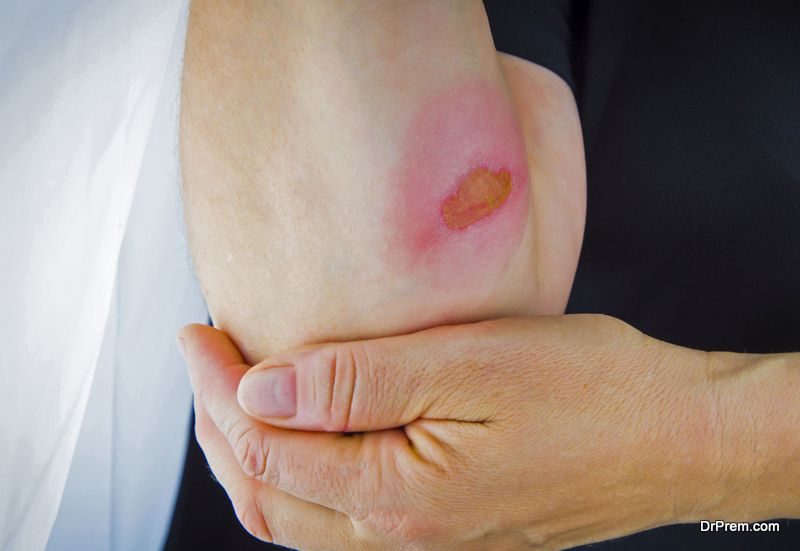 Cleanliness is the key to quick recovery after surgical treatment of hernia. It is advisable to use a sponge or a towel for the first few days. This will help to keep the wound clean and avoid any kind of infections. Always follow your doctor’s instructions. Precautions like covering the wound while coughing helps. Surgical treatments can get contaminated too soon, therefore always follow stringent measures to keep the area clean and sterilized at all times. Until the incision heals, hygiene is of utmost importance.
Cleanliness is the key to quick recovery after surgical treatment of hernia. It is advisable to use a sponge or a towel for the first few days. This will help to keep the wound clean and avoid any kind of infections. Always follow your doctor’s instructions. Precautions like covering the wound while coughing helps. Surgical treatments can get contaminated too soon, therefore always follow stringent measures to keep the area clean and sterilized at all times. Until the incision heals, hygiene is of utmost importance.
Before taking a shower, cover the surgical area with a plastic bag or use another technique to keep it dry. Keep a watch for any signs of infection. The use of non-absorbable mesh grafts could lead to infections or foreign body reactions if sanitation is not taken care of. Any kind of swelling or bluish discoloration at the incision site should be treated with an ice pack for 24-48 hours to relieve the swelling and discomfort. You may opt to keep a small pillow with you to avoid any discomfort while coughing. Taking a shower is advisable only after 24 hours after you go home unless you have drains. In case of metal clips or sutures not being visible, they are under the skin and will dissolve after 3 – 4 weeks.
6. Resuming activity after hernia repair
 You will be able to mobilize post hernia surgery depending upon your surgical treatment. You can treat hernia with various medical techniques like conventional surgery or laparoscopic surgery, depending on your condition. The hernia which has been treated laparoscopically allows the patient to return to their regular routine faster as compared to recovery from the conventional surgery which takes a little longer due to pain and soreness around the wound. Generally, a doctor advises the patient on the amount of discomfort they might experience and precautions that need to take before resuming to the daily routine.
You will be able to mobilize post hernia surgery depending upon your surgical treatment. You can treat hernia with various medical techniques like conventional surgery or laparoscopic surgery, depending on your condition. The hernia which has been treated laparoscopically allows the patient to return to their regular routine faster as compared to recovery from the conventional surgery which takes a little longer due to pain and soreness around the wound. Generally, a doctor advises the patient on the amount of discomfort they might experience and precautions that need to take before resuming to the daily routine.
You should take care of various precautions, like standing up slowly every time. Activities such as swimming or driving need to be avoided as they put a strain on the incision. The same holds true for office routine. Individuals who are in a desk job can usually return to work within a week or two but where work requires strenuous activity or heavy lifting require several more weeks of rest before they return to their job.
7. Follow-up on your appointment
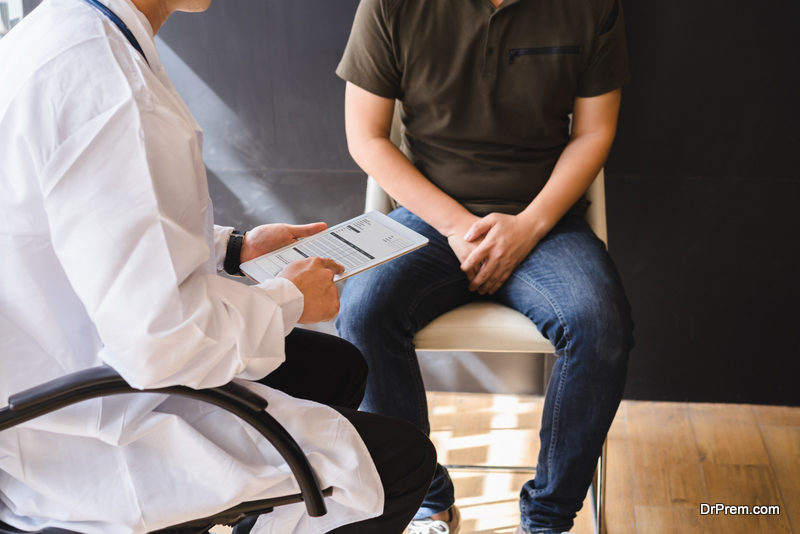 It is imperative to schedule a follow-up visit 7-10 days after your surgery. Your doctor will check if the wound has healed completely or in case you need some special care including dosage of antibiotics for a few more days. He will also let you know in case you need to take any special precautions to expedite the healing. In case your diet requires any change, your medical expert will guide you through it. In case your incision has not healed or if there is any kind of discomfort, talk to your doctor about it. If all is well, your doctor will remove your stitches in case they are not the ones that dissolve on their own. Or maybe your dressing will be changed depending upon the wound healing and the swelling and bruising checked.
It is imperative to schedule a follow-up visit 7-10 days after your surgery. Your doctor will check if the wound has healed completely or in case you need some special care including dosage of antibiotics for a few more days. He will also let you know in case you need to take any special precautions to expedite the healing. In case your diet requires any change, your medical expert will guide you through it. In case your incision has not healed or if there is any kind of discomfort, talk to your doctor about it. If all is well, your doctor will remove your stitches in case they are not the ones that dissolve on their own. Or maybe your dressing will be changed depending upon the wound healing and the swelling and bruising checked.
At this stage, the doctor will also discuss post-operative care and assess your condition to return to work. It is highly unlikely to suffer from any severe post-operative snags. Mild complications like blood clots or urinary problems may persist. Your doctor will advise required medications for the same. But, these mild complications are extremely rare. You should also consult your doctor about when you can resume specific activities such as sports, heavy labor and lifting. Post your initial check-up, you should plan on weekly checkups to further avoid any risks until the next four weeks. It is important to get regular medical checkups while following the precautions.
7 Things to avoid after hernia surgery
The individuals who had their Hernia repair operation done must keep in minds various mistakes that should be avoided for a safe and better health.
1. Avoid Strenuous Work and Lifting weight
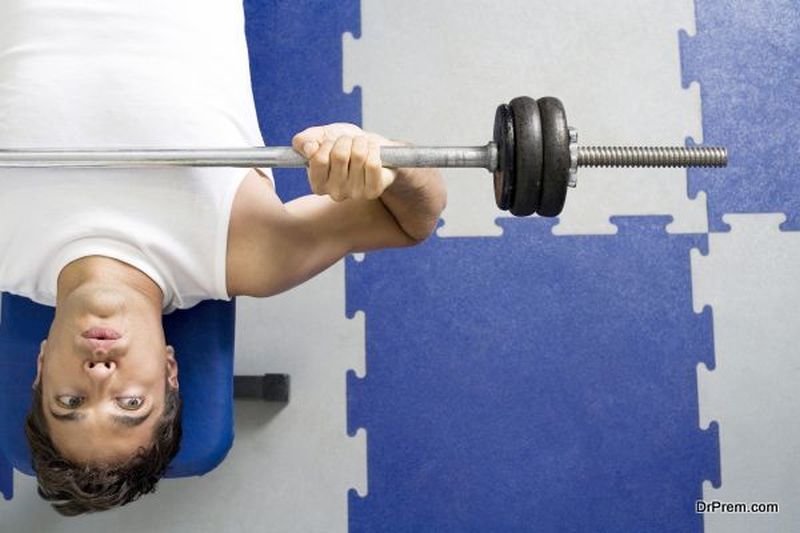 Patients who recently had their Hernia repair Operation done must take extra care of themselves. They should remember that strenuous work or lifting weight would cause adverse effects to the stitching. The abdominal stitch needs to heal for sometime and due to the delicate condition of the area, special care needs to be taken in order to provide relief to the pain inflicted by Hernia. Strenuous work might harm the patient to fall sick as he is already unwell to perform chores that he would have done otherwise. Doctors prescribe to take rest or do minimal work as the healing takes time and any sort of pull or stretch might degrade the area operated.
Patients who recently had their Hernia repair Operation done must take extra care of themselves. They should remember that strenuous work or lifting weight would cause adverse effects to the stitching. The abdominal stitch needs to heal for sometime and due to the delicate condition of the area, special care needs to be taken in order to provide relief to the pain inflicted by Hernia. Strenuous work might harm the patient to fall sick as he is already unwell to perform chores that he would have done otherwise. Doctors prescribe to take rest or do minimal work as the healing takes time and any sort of pull or stretch might degrade the area operated.
2. Avoid diet that would affect the treatment
 A doctor recommends liquid diet for two long weeks to the patients who just went through Hernia repair operation. Basically, the health conditions or the appetite would not be able to stand or tolerate any solid food. One must eat only food items that the body can take or handle and this would help to avoid any kind of discomfort. Alcohol must also be avoided when medication is on as it might harm the treatment. It is good to avoid food that includes much chewing or high fiber food items which could trigger constipation that is extremely bad for Hernia Operation healing. Avoid food that is rich in fat or glucose or foods that one is allergic or sensitive to, because that might cause the patient to vomiting or falling sick.
A doctor recommends liquid diet for two long weeks to the patients who just went through Hernia repair operation. Basically, the health conditions or the appetite would not be able to stand or tolerate any solid food. One must eat only food items that the body can take or handle and this would help to avoid any kind of discomfort. Alcohol must also be avoided when medication is on as it might harm the treatment. It is good to avoid food that includes much chewing or high fiber food items which could trigger constipation that is extremely bad for Hernia Operation healing. Avoid food that is rich in fat or glucose or foods that one is allergic or sensitive to, because that might cause the patient to vomiting or falling sick.
3. Avoid Rigorous Exercises
 As mentioned before, Doctors do not recommend lifting heavy items after Hernia Surgery. Lifting heavy things could make worse the existing pain or condition. Light exercises can be taken up after three weeks that is needed for keeping a good health but even though exercises are not prescribed one should not curb him from doing the regular physical activity such as moving around the house and going for a walk. After couple of weeks from the Hernia Repair Operation, the patient can start swimming or go for a light jogging couple of times in a week. By doing such things it would improve the general health and also the cardiovascular aspect. However, this should only be done after three weeks as pushing yourself so much could create discomfort and increase pain in and around the area where the surgery has been done.
As mentioned before, Doctors do not recommend lifting heavy items after Hernia Surgery. Lifting heavy things could make worse the existing pain or condition. Light exercises can be taken up after three weeks that is needed for keeping a good health but even though exercises are not prescribed one should not curb him from doing the regular physical activity such as moving around the house and going for a walk. After couple of weeks from the Hernia Repair Operation, the patient can start swimming or go for a light jogging couple of times in a week. By doing such things it would improve the general health and also the cardiovascular aspect. However, this should only be done after three weeks as pushing yourself so much could create discomfort and increase pain in and around the area where the surgery has been done.
4. Avoid Gaining weight
 Avoid gaining weight as it might create problem for the body. One must evaluate what he is eating and the regular habits of his diet. The concerned must keep a track of the calories as it is important to maintain a low-calorie diet. Avoid consuming all kinds of processed food items. He or she should eat more green vegetables and fresh fruits that will help him keep the weight in control. Resting for the illness might compel individuals to eat out of boredom which must be stopped as soon as possible. It is prescribed to keep the mind distracted with other things apart from food. Bulging belly or fatty lower abdomen might create adversities for Hernia treatment and operation.
Avoid gaining weight as it might create problem for the body. One must evaluate what he is eating and the regular habits of his diet. The concerned must keep a track of the calories as it is important to maintain a low-calorie diet. Avoid consuming all kinds of processed food items. He or she should eat more green vegetables and fresh fruits that will help him keep the weight in control. Resting for the illness might compel individuals to eat out of boredom which must be stopped as soon as possible. It is prescribed to keep the mind distracted with other things apart from food. Bulging belly or fatty lower abdomen might create adversities for Hernia treatment and operation.
5. Avoid Coughing as it increases the Pain
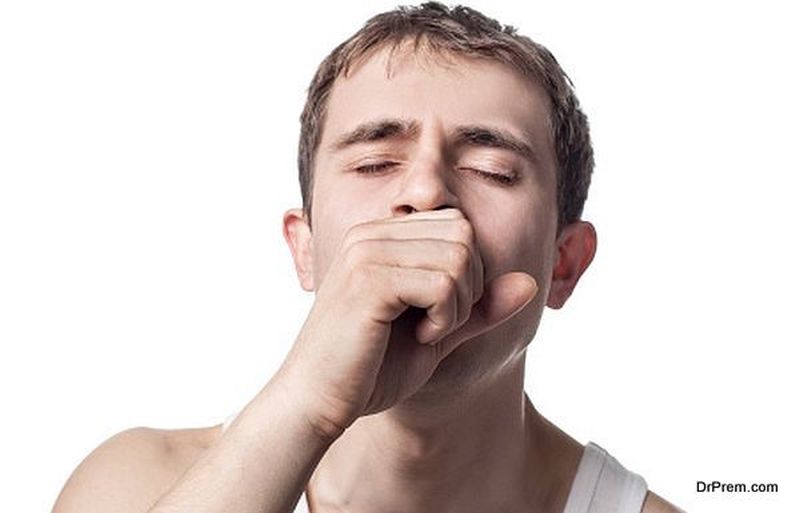 Avoid coughing or sneezing when relating to Hernia is concerned. The force and coercion created while coughing delivers pain to the right testicle and the groin is hurt badly because of the strain caused. Coughing could be caused due to several reasons such as allergies, cold or bronchitis and thus taking good care of the health is of utmost importance. Persistent coughing could lead to dangerous results to the Hernia, so as fast as possible medication should be started to stop one from coughing hard. One can simply use a nasal drip or take cough syrups to lessen the pain.
Avoid coughing or sneezing when relating to Hernia is concerned. The force and coercion created while coughing delivers pain to the right testicle and the groin is hurt badly because of the strain caused. Coughing could be caused due to several reasons such as allergies, cold or bronchitis and thus taking good care of the health is of utmost importance. Persistent coughing could lead to dangerous results to the Hernia, so as fast as possible medication should be started to stop one from coughing hard. One can simply use a nasal drip or take cough syrups to lessen the pain.
6. Avoid Talking too Loudly
 One must avoid talking loudly in order to keep his health in check for Hernia repair operation. The strength needed to speak or talk loudly creates excessive pull to the Hernia area wherein pain regenerates creating suffocation. As sounds create vibration similarly talking loudly creates vibration through the body pulling out extra strength from the body those results into worsening of the Pain. With continuous loud voice the heat generated in the body tends to trigger explosion like pain in the testicles along with area around the Hernia. Therefore, talking loudly must be avoided.
One must avoid talking loudly in order to keep his health in check for Hernia repair operation. The strength needed to speak or talk loudly creates excessive pull to the Hernia area wherein pain regenerates creating suffocation. As sounds create vibration similarly talking loudly creates vibration through the body pulling out extra strength from the body those results into worsening of the Pain. With continuous loud voice the heat generated in the body tends to trigger explosion like pain in the testicles along with area around the Hernia. Therefore, talking loudly must be avoided.
7. Avoid Running or heavy Sports
 Avoid running or generating so much activity for the body that effects Hernia Repair operation for worse. Running tends to create huge amount of heat in the body that is extremely harmful for the Hernia. The pulling of different muscles might form some kind of wound or excretion of pain in the area for repeated motion. Running could lead to dehydration for the body and this is one of the worst things for Hernia repair operation as the body requires having right water content. With improper training or without doctor’s advice, running could lead to breaking down of various muscles; inflame various parts which could also degrade the Hernia. Hence, it is better to avoid running during Hernia Repair Operation.
Avoid running or generating so much activity for the body that effects Hernia Repair operation for worse. Running tends to create huge amount of heat in the body that is extremely harmful for the Hernia. The pulling of different muscles might form some kind of wound or excretion of pain in the area for repeated motion. Running could lead to dehydration for the body and this is one of the worst things for Hernia repair operation as the body requires having right water content. With improper training or without doctor’s advice, running could lead to breaking down of various muscles; inflame various parts which could also degrade the Hernia. Hence, it is better to avoid running during Hernia Repair Operation.


